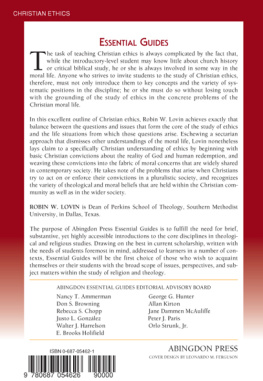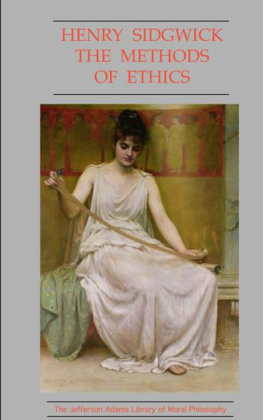Mariko Nakano-Okuno - Sidgwick and Contemporary Utilitarianism
Here you can read online Mariko Nakano-Okuno - Sidgwick and Contemporary Utilitarianism full text of the book (entire story) in english for free. Download pdf and epub, get meaning, cover and reviews about this ebook. year: 2011, publisher: Palgrave Macmillan, genre: Science. Description of the work, (preface) as well as reviews are available. Best literature library LitArk.com created for fans of good reading and offers a wide selection of genres:
Romance novel
Science fiction
Adventure
Detective
Science
History
Home and family
Prose
Art
Politics
Computer
Non-fiction
Religion
Business
Children
Humor
Choose a favorite category and find really read worthwhile books. Enjoy immersion in the world of imagination, feel the emotions of the characters or learn something new for yourself, make an fascinating discovery.

- Book:Sidgwick and Contemporary Utilitarianism
- Author:
- Publisher:Palgrave Macmillan
- Genre:
- Year:2011
- Rating:3 / 5
- Favourites:Add to favourites
- Your mark:
- 60
- 1
- 2
- 3
- 4
- 5
Sidgwick and Contemporary Utilitarianism: summary, description and annotation
We offer to read an annotation, description, summary or preface (depends on what the author of the book "Sidgwick and Contemporary Utilitarianism" wrote himself). If you haven't found the necessary information about the book — write in the comments, we will try to find it.
Sidgwick and Contemporary Utilitarianism — read online for free the complete book (whole text) full work
Below is the text of the book, divided by pages. System saving the place of the last page read, allows you to conveniently read the book "Sidgwick and Contemporary Utilitarianism" online for free, without having to search again every time where you left off. Put a bookmark, and you can go to the page where you finished reading at any time.
Font size:
Interval:
Bookmark:
We have finished the examination of Sidgwicks ethical theory and its implications for contemporary utilitarianism. In this concluding chapter, let us simply summarize the arguments we developed in the previous chapters.
Utilitarian ethical theory is typically comprised of several unique factors, such as consequentialism, the maximization principle, hedonism and the policy to express the aggregation of pleasures as its sum total. We have elucidated how these components are analyzed and sustained by Sidgwick. According to him, consequentialism is supported through our critical examination of common-sense morality and our intuitive comprehension of the fundamental moral Principles of Rational Self-Love and Benevolence. That is, we concluded that consequentialism is the only viable way to systematically make a moral decision, by observing that nonconsequentialist approaches cannot help us to coherently determine the rightness and wrongness of an act, and by arguing that we ultimately appeal to various goods that an act will bring about when we consider what action one ought to take. The maximization principle of the sum total of peoples goods is derived from an analysis of the concept of good and the combination of two intuitive principles, Self-Love and Benevolence, plus the assumption that the whole is to be construed as the sum total of its parts. The hedonistic interpretation of the ultimate good is proved to be most plausible by first clarifying the concepts of pleasure and good and then examining all conceivable candidates for the ultimate good. This hedonistic value theory supports the idea that the good on the whole should be understood as the sum total of pleasures, and thus the utilitarian principle of maximizing the sum total of peoples pleasure is derived. Finally, the overall plausibility of utilitarian theory is confirmed by our well-considered commonsense. By examining all these aspects of Sidgwicks argument, I have clarified the exact structure, content and foundations of his utilitarian theory as much as I can.
We also investigated Sidgwicks conceptual analyses, the four basic conditions for valid reasoning, and the three fundamental moral principles, all of which serve as the basis of ethics. One crucial point to be made regarding these analyses is Independent Interpretation, which shows the true significance of the essential distinction between the Principle of Justice and the other two fundamental moral principles that was previously underestimated.
Based on such explication of Sidgwicks ethics and his utilitarianism, we further inquired into contemporary discussions concerning (1) the fundamental principles of utilitarian ethical theory, (2) hedonistic versus preference-based value theories, (3) interpersonal comparisons of the strength of preferences, and (4) the possibility of reconciling egoism with utilitarianism. In doing this, we examined how contemporary utilitarians have developed new arguments to overcome the theoretical difficulties of utilitarianism and of ethics in general.
One feature that contemporary utilitarians inherited from Sidgwick is the resolution to develop an unbiased moral theory without appealing to moral intuitions and/or so-called commonsense that are often ambiguous, conflicting and dogmatic. In the same spirit Hare attempted to clarify the philosophical foundations of utilitarian ethical theory by using the minimum tools, such as language and facts, that we share. In his linguistic analysis, Hare spelled out that Sidgwicks Principle of Justice actually states the logical property (universalizability) of ought-judgments. He also demonstrated the link between prescriptivity of moral judgments and the concept of preferences. These points certainly contributed to the clarification of the structure of utilitarian ethical theory. However, Hares utilitarian theory, which appeared to be based only on the logic of ought-judgments and recognized facts, turned out to be imperfect. In using the conditional reflection principle to represent other peoples preferences to oneself, and in assuming that one ought to give equal weight to all the preferences represented to oneself, Hares theory implicitly introduces additional requirements concerning the quantitative treatment of goods, which are equivalent to Sidgwicks Principles of Self-Love and Benevolence. It is important to remember that we could elucidate this flaw in Hares theory by bringing to light the true significance of Sidgwicks three principles and the differences among them. Only because we reexamined Hares argument with the knowledge of Sidgwicks ethics could we notice the unresolved issues of contemporary utilitarianism and the challenges we should deal with in the future. Hares moral philosophy contains a hurdle that has not yet been overcome. We should provide further justification for the fundamental principle(s) which cannot be explained simply as the logical requirement of ought-judgment. We need to prove, or at least explain, why one ought to give equal weight even to the preferences of others or to those at different times according to the strengths of those preferences.
Next we examined the preference-satisfaction theory that some contemporary utilitarians came to adopt in place of classical hedonism. Once again we focused attention on Hares argument. It seemed that the preference-satisfaction theory is more favorable than hedonism in that it does not require the intricate proof that we needed for hedonism, and yet it is practicable and easy to apply. When we scrutinized the recent HajdinHare debate, however, it turned out that, at least for some preferences, the state of mind in which those preferences are either satisfied or frustrated is the key to moral reasoning. I claimed that this is another example which shows the singular quality of Sidgwicks ethical theory. One main point in Sidgwicks hedonism was that the state of mind (feeling) in which ones preference is satisfied is what we should ultimately consider in our moral reasoning. This is exactly what Hajdin claimed about Hares preference theory, but Sidgwick further attempted to provide the proof of it, in order to explain the reason why such a state of mind is the key to moral reasoning. This is the argument that Hare did not provide. Sidgwicks proof of hedonism should be regarded as a laudable attempt to fill the gap between our moral motives and the representation of other peoples preferences to ourselves.
As for the problems regarding the interpersonal comparison of the strength of preferences, we first discussed the difficulties that arise when we deny this kind of comparability, referring to arguments after Sidgwick. We then examined Harsanyis claim that we need some process of converting each persons preference scale into a certain common scale if we are to make an accurate interpersonal comparison of the strength of preferences. It is Harsanyis great contribution that he contrived a more detailed structure of interpersonal comparison than Sidgwick, who simply postulated that we can quantify the intensity of various peoples pleasure. The device that Harsanyi proposed to measure and compare peoples preferences at different times is the method of imagining the exchange of positions, representing anothers preferences to oneself, and forming ones own extended preferences. Still, the theoretical difficulties of interpersonal comparison remain, for there is no guarantee that a persons extended preferences or his own conversion ratio agree with those of others. Moreover, even if we assume that the strengths of preferences are interpersonally comparable, we can still question if the utilitarian principle is the only principle that can be advocated. Utilitarianism is the claim that we ought to give equal weight to peoples preferences according to their strengths and to maximize the sum total of peoples preference-satisfaction. There are other theorists, however, who claim different methods to weigh peoples preferences, wishes, needs, life plans, etc. in a fair manner. Some attempt to consider peoples preferences without making any of the interpersonal comparisons advocated by utilitarians. Others are inclined to adopt nonutilitarian ways of comparing peoples goods, such as Rawlss difference principle and the principle of multiplying peoples utilities. One of our future tasks would be to do some comparative study of these utilitarian and nonutilitarian principles of weighing and/or balancing peoples different goods.
Font size:
Interval:
Bookmark:
Similar books «Sidgwick and Contemporary Utilitarianism»
Look at similar books to Sidgwick and Contemporary Utilitarianism. We have selected literature similar in name and meaning in the hope of providing readers with more options to find new, interesting, not yet read works.
Discussion, reviews of the book Sidgwick and Contemporary Utilitarianism and just readers' own opinions. Leave your comments, write what you think about the work, its meaning or the main characters. Specify what exactly you liked and what you didn't like, and why you think so.







